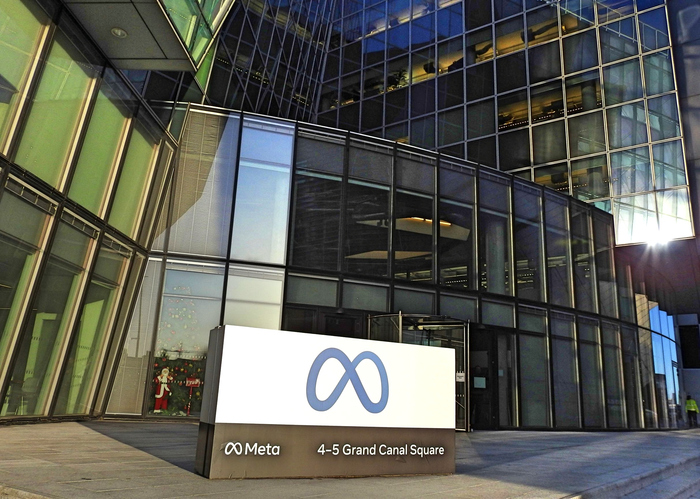May 14, 2025

This information is provided for educational purposes only by Kohn, Kohn & Colapinto and does not constitute legal advice. No attorney-client relationship is created by accessing this content. Laws and regulations may change, and this material may not reflect the most current legal developments. If you believe you have a whistleblower claim, consult a qualified attorney to discuss your specific circumstances.
What are NFTs?
Non-Fungible Tokens (NFTs) are digital assets that are recorded on a blockchain that supports smart contract programming, such as the ERC-721 standard on the Ethereum blockchain. There are also other blockchains, such as Polygon, Solana, Cardano, and many others.
NFTs are essentially digital certifications that purport to represent ownership of unique assets, such as art, music, video, or even real-world assets, such as real estate, collectibles, luxury goods, and more. Once an asset is converted into digital tokens through tokenization, it can be linked to a smart contract and traded on the blockchain.
As of November 2024, Forbes estimates the market cap of the global NFT market to be approximately $70 billion, which makes it a perfect target for fraudsters and scammers alike.
How are NFTs Abused?
The widespread creation of tokens and the websites that sell NFTs has drawn a large amount of fraudulent criminal activity. This has led to hundreds of millions of dollars in losses for investors in NFTs and NFT projects who’ve been duped into purchasing fake NFTs, or who have been tricked into unknowingly providing their login credentials to fraudsters via fake NFT exchange sites.
The Securities and Exchange Commission (SEC) is keeping a close eye on NFTs, especially those being offered without first being registered. Those who know of NFT fraud or unregistered NFT offerings can report their concerns to regulators and potentially receive an award of between 15% and 30% of the monetary sanctions collected in a successful enforcement action.
Continue reading to learn more about the various types of NFT frauds and violations out there and the process of reporting them to the SEC. Your information can help protect investors from harm and massive financial losses resulting from deceit and manipulation.
NFTs as Securities
The SEC will use the Howey Test, named after a 1946 Supreme Court case, to determine if an investment contract is a security, and thus sales of those contracts should be regulated as offerings of securityies. This test has three main criteria, which are:
- Investment of money: The transaction involves an investment of money
- Expectation of profits: Investors expect to profit from the investment from the efforts of others
- Common enterprise: The investment is in a common enterprise
This applies to any contract, scheme or transaction, even if it doesn’t have the standard characteristics of a traditional security. This test is extremely important in the regulatory process for all digital assets like NFTs.
In other words, not all NFTs are considered securities, and thus not all sales of NFTs require registration. However, if the NFT represents a security token, where a profit is expected from the efforts of others, then its sale will likely need to be registered.
Gurbir S. Grewal, Director of the SEC’s Division of Enforcement, stated:
“Regardless of whether your offering involves beavers, chinchillas or animal-based NFTs, under the federal securities laws, it’s the economic reality of the offering – not the labels you put on it or the underlying objects – that guides the determination of what’s an investment contract and therefore a security.”
NFT Securities Violations
As we said, if an NFT represents real-world assets like real estate or a business, and investors expect a profit from this, or if there an NFT promises future dividends, royalties, or other financial gains, they can be considered a security, and may need to be registered.
Failure to register an NFT such as this could be considered a violation of Section 5 of the Securities Act of 1933, which prohibits the offer or sale of securities unless a registration statement has been filed with the SEC and is effective.
Other Securities Act violations include making false or misleading statements in connection with the offer or sale of securities, failing to provide material information to investors, or engaging in fraudulent or manipulative practices in connection with the offer or sale of securities.
The SEC is focusing on the programming of NFTs as part of its scrutiny, specifically the inclusion of royalty fees for the issuer on secondary market sales. This mechanism, they argue, creates an incentive for investors to buy and sell NFTs, further solidifying their classification as securities.
Example
In 2023, the SEC filed its first actions against issuers of NFTs. Based on the Division’s investigations, the SEC charged Impact Theory LLC and Stoner Cats 2 LLC for conducting illegal unregistered offerings of crypto asset securities in the form of purported NFTs.
NFT Frauds and Scams
Beyond securities law violations, NFTs have been exploited in a variety of scams that deceive investors with promises of guaranteed returns. Below are examples of NFT frauds and scams that aim to defraud those who invest in the projects:
- Pump and Dump Schemes: pump-and-dump schemes involve a scammer increasing the value of an NFT by hyping it up through various means, only to sell it when it reaches an all-time high.
- Phishing Scams: scammers create fake websites that mirror a legitimate NFT project, which trick users into revealing their wallet passwords or phrases.
- Rug Pulls: scammers will hype up an NFT project to get people to invest, or to raise funds, only to abandon the project – leaving investors with worthless NFTs.
- Wash Trading: in such schemes, a small group of people will buy and sell NFTs amongst themselves to create a false sense of demand and thereby increase the price others are willing to pay.
- Misleading Claims: scammers make false or misleading claims about the future value of an NFT, such as promising unrealistic returns on investment.
- NFT Giveaways or Airdrops: scammers may offer fake NFT giveaways or airdrops to collect personal information or require users to connect their wallets.
There are other tactics used by scammers as well, such as social engineering and dating scams, which aim to manipulate people into revealing sensitive information that can be exploited.
Reporting NFT Frauds: SEC Whistleblower Program
Whistleblowers play an important role in identifying and preventing NFT frauds and scams. These are typically insiders, such as developers or contributors who have intimate knowledge about an NFT project, including its underlying programming or intent to defraud investors. By bringing their concerns to the SEC, whistleblowers can help minimize the harm to investors, preserve the integrity of various markets, and hold perpetrators of NFT frauds accountable.
Awards
The SEC Whistleblower Program was created on July 20210 in Section 922 of the Dodd-Frank Act, which provides monetary awards to eligible individuals who bring high-quality original information to the Commission, which leads to an enforcement action over $1 million. This award is between 10% and 30% of the money collected, which depends on many factors.
Protections
Additionally, under the Dodd-Frank, whistleblowers are protected from retaliation. Meaning an employer or fraudster may not discharge, demote, suspend, or harass a whistleblower for engaging in a protected activity, such as reporting concerns to the SEC or assisting in an investigation. Failure to comply with such provisions may result in an enforcement action.
Anonymity
Under the SEC Whistleblower Program, whistleblowers may submit Tips, Complaints and Referrals (TCR) anonymously. However, they must do so with the help of an attorney. We’ve written an extensive FAQ on this How to File Claims Anonymously As An SEC Whistleblower, and urge whistleblowers to learn more about this, as it greatly reduces potential exposure.
Evidence
When filing a tip with the SEC, it’s important to possess original high-quality information about an NFT scam, as this will greatly increase the chances of triggering an investigation. Evidence might include screenshots, emails, documents, internal communications, text messages, or such as on Discord or Slack, or blockchain transaction records.
To learn more about the SEC Whistleblower Program, read our comprehensive guide:
SEC Whistleblower Program: A Guide to Reporting Financial Fraud
Seeking Legal Assistance
Led by former SEC acting chair and commissioner Allison Herren Lee, former SEC Enforcement Senior Counsel Andrew Feller, and renowned whistleblower attorney Stephen M. Kohn, our team has been shaping the landscape of whistleblower protection for over 35 years. If you have informationa about an NFT fraud or cryptocurrency scam, contact us today for a free case evaluation. Your information is covered under client-attorney privilege and there’s no fee unless we get you an award.
Our Firm’s Cases

Environment & Human Rights Violations Exposed
Oil industry’s environmental crimes and cover-up in Colombia have been exposed. Whistleblower Andrés Olarte Peña, with the support of his attorneys Kohn, Kohn & Colapinto and the damning evidence compiled in the Iguana Papers, is calling for an investigation into Ecopetrol and its executives by the Colombian government and the U.S. Securities and Exchange Commission.

$30 Million Award
Protecting the confidentiality of Wall Street whistleblowers is among the most important breakthroughs in federal whistleblower law. Under the Dodd-Frank Act, whistleblowers can file anonymous cases, and everything about their case, including who they sued, remains secret.

$13.5 Million Award
Our firm represented an anonymous whistleblower, who on May 17, 2021, received a whistleblower award of almost $13.5 million. The SEC has issued more than $31 million in whistleblower awards related to this case.
![Reporting Recordkeeping Failures To The Sec [2025 Guide]](https://kkc.com/wp-content/uploads/2025/01/Recordkeeping-Failures.jpg)




